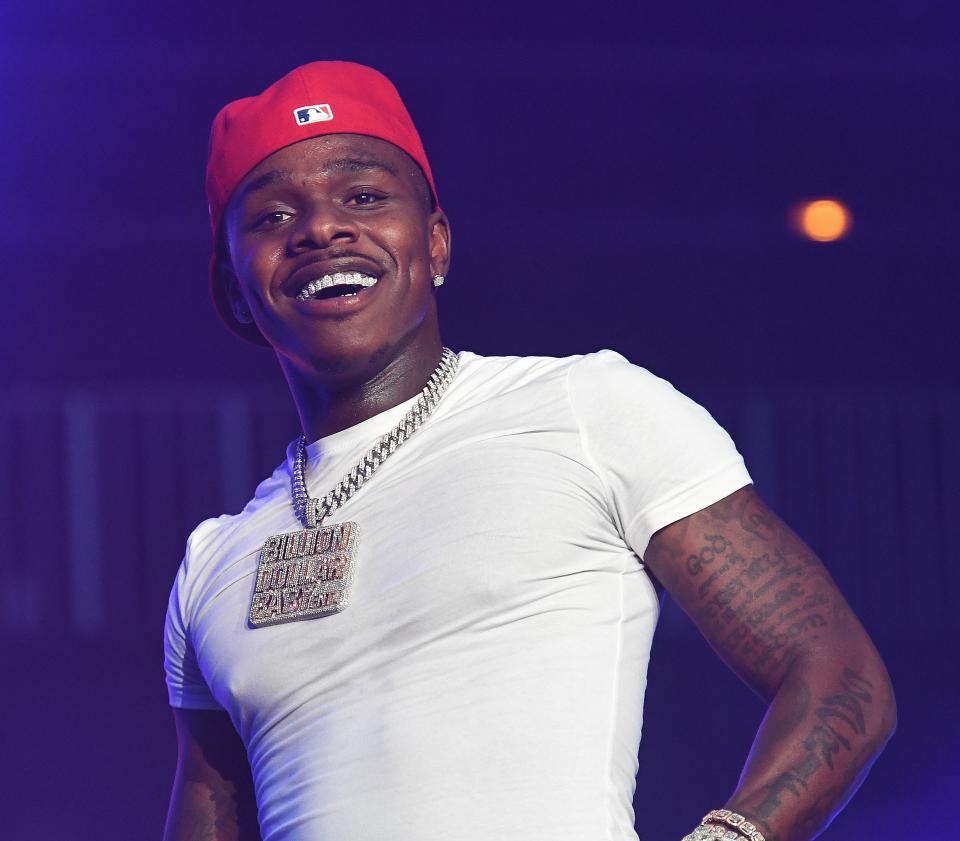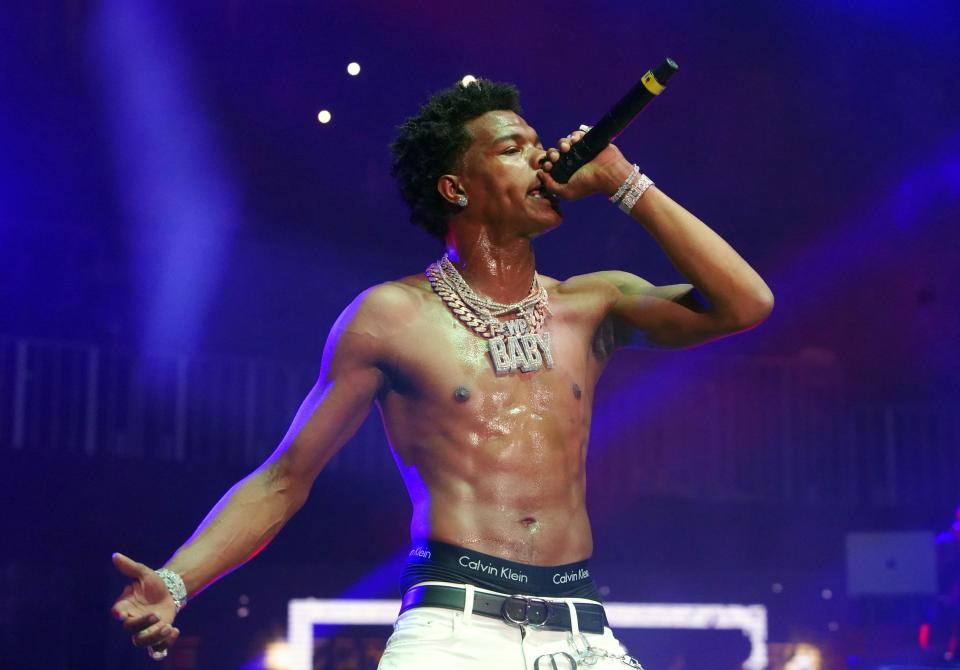Rap's Baby Boom
As a music journalist in 2019, it is often the case that when I wake up each morning and tend to my respective feeds (like the dutiful Content Farmer my mother raised me to be), I am made aware of the existence of yet another young, talented rapper whose music I feel compelled to acquaint myself with. Of late, an increasing number of these artists have been, nominally, infants.
I’m not the first to notice this. As UPROXX’s Aaron Williams noted in April, a cursory overview of contemporary rap might lead your hardcore hip-hop fan uncle (newly arisen from a 20-year nap) to suspect “there had been a sudden boom in child rappers.” Whether or not that’s true is disputable. What’s inarguable is the fact that many hip-hop’s rising stars are calling themselves some variation of “baby.”
To be more precise: Lil Baby, DaBaby, Sada Baby, Sahbabii, Bbymutha, Baby Goth. Bhad Bhabie, Baby Soulja, Baby Keem, Bali Baby, Young Baby Tate, Baby E, BBG Baby Joe, and—believe it or not—more.
We’re living through a second Baby Boom. Feel old yet?

Hot 107.9 Birthday Bash 2019 - Concert
Getty ImagesIt wasn’t long ago that people were clamoring about the proliferation of “Lil’s” in the rap world. From Lil Zane to Lil Wayne, late ‘90s-early ‘00s hip-hop was littered with diminutives. Don’t get me wrong, there were babies too. Cash Money founder, Birdman, FKA Brian “Baby” Willams, continues to be the biggest baby of them all. But, in recent years, the babies have taken over, and they’re arriving in all shapes and sizes.
Baby Keem is an 18-year-old rising star who’s already contributed production and songwriting to Kendrick Lamar’s Black Panther: The Soundtrack and Schoolboy Q’s latest CrasH Talk. The Las Vegas native sounds like a lab-generated hybrid of the two artists, rapping high-pitched, Lamar-like couplets over the type of rib-cracking beats that Schoolboy favors.
Chattanooga’s Bbymutha is a serious bar-spitter who is equal parts witchy and hilarious. The 30-year-old grabbed attention in 2017 with her menacing “RULES.” Since then, she’s built a devoted following online, released a steady stream of projects, and even put her own spin on a Tame Impala song. She’s also a mother of actual babies!
Sahbabii, a personal baby favorite, is perhaps the most enigmatic figure of the bunch. He is one of the more eccentric artists to emerge from the herd of Young Thug-indebted weirdos that have taken over Atlanta in recent years. The “King Squid” has rapped lasciviously about amphibians, expressed a desire to design Anime video games, and—at just 22—is already considering retiring from music altogether.
The two most prominent faces of contemporary “Baby Wave” are probably Lil Baby and DaBaby. The former, born Dominique Jones, is a marquee name on the roster of the chart-dominating Atlanta imprint Quality Control Music. In March, “Drip Too Hard”—the breakout single from his collaborative mixtape with Gunna—was certified platinum. DaBaby, born Jonathan Kirk, is a Charlotte, North Carolina rapper whose tough guy theatrics in videos like the one for his song “Suge” and in Louis Vuitton stores across America have turned him into somewhat of a cult figure.
In July, the baby trend reached a head and began to fold back on itself in that beautiful, meta-textual way that all truly great memes do. Lil Baby and DaBaby released their song “Baby,” a two-and-a-half minute treatise on their irrefutable toughness, the spoils of their well-earned success, and also a tacit acknowledgement of their status as the faces of an outright phenomenon.

Hot 107.9 Birthday Bash 2019 - Concert
What has prompted such a mass regression to infancy? Your guess is as good as mine. As I’ve come to learn in the not inconsiderable time I’ve spent thinking about this subject, attempting to ascribe any logical rationale to the rise of this trend yields inconclusive results.
“I’m Baby” felt like an appropriate place to start my inquiry. Earlier this year, the meme—whose origins can apparently be traced back to a typo in a distressed text exchange during a home invasion—nearly sent the entire internet back to the nursery. At its peak, many argued referring to oneself as “baby” was a therapeutic, exculpating, and potentially even revolutionary act. It wasn’t, however, immediately apparent to me what any of that had to do with Gucci Mane.
“Maybe it’s because they’re all young?” you might offer quite reasonably. Fair. As this Genius video points out many of the rappers in question received their neonate moniker for the simple fact that they were the younger one in the crew. Still, isn’t almost every rapper kinda young?
“Yeah, Jordan, but it’s probably like a regional thing.” Ok, lower your voice. But, fine. This seems to be a more plausible answer. We often do associate referring to someone as “baby”—irrespective of their neurocranial development—as a distinct southern affectation. It has the casually intimate feel of gossiping with a friend on a porch between sips of sweet tea. Of the thirteen rappers I listed above, 10 of them hail from states below the Mason-Dixon. What, then, do we say to Colorado’s very own Baby Goth?
If you ask me, I think it just happened. Somewhere within the last few years we slipped into one of those amazing, uncanny pop cultural moments where everyone seems to be tuned into the same frequency. Think the ‘80s and Karate or the late ‘90s and impending intercontinental catastrophe. At a glance, these kinds of mass synchronicities can seem both silly and entrancing, like when athletes inadvertently move in unison. In our case, they’re not NBA players; they’re rappers. And, they’re not moving in sync; they’re all just a bunch of babies.
Originally Appeared on GQ

